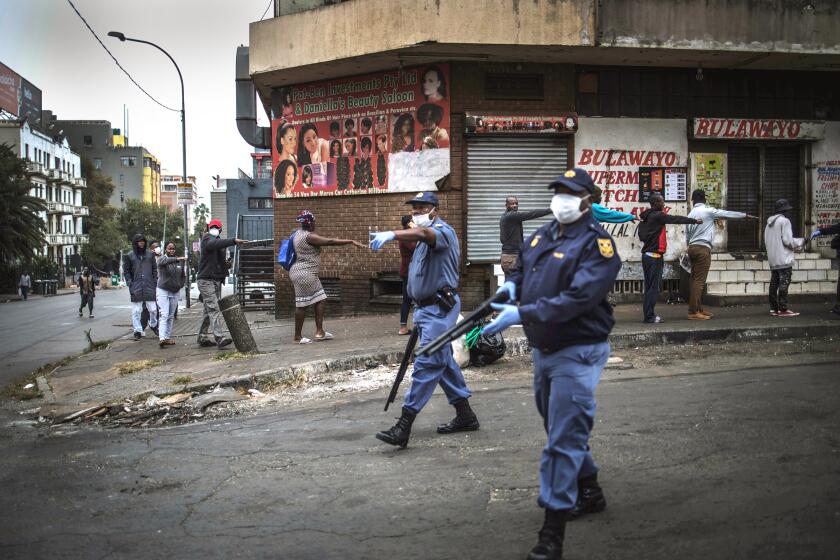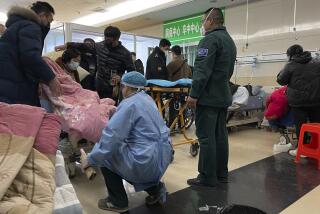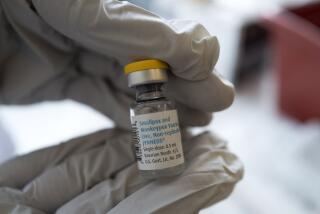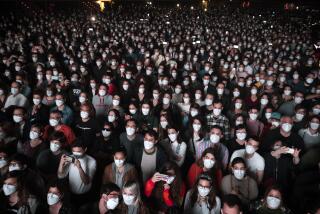In hard-hit Spain, emergency care workers describe coronavirus stress

- Share via
GIJON, Spain — The memory of seeing dozens of coronavirus-infected senior citizens isolated at a nursing home in northern Spain haunts Juan González.
González, director of training for an emergency health team that serves the Asturias region, recently responded to a nursing home where seniors who were not infected were separated from those who were ill, which he agreed made sense. But seeing the 80 or so seniors left behind for treatment amid the deadly virus while his team relocated the healthy made a powerfully sad impression on González, one he cannot shake no matter how he tries.
“I barely get a couple of hours of sleep. I wake up in a panic, startled,” he said recently at Transinsa, an emergency transport service with 150 ambulances.
“It is a war without bombs,” said González, who also struggles with knowing that colleagues may become infected while doing their jobs. “We are on the front line and sometimes what protects you is a double-edged sword. If you touch a contaminated surface with the glove, the glove is the enemy.”
Spain, one of the nations hardest-hit by the coronavirus, has seen ambulance companies report hundreds of workers stricken by COVID-19, according to data from the country’s National Federation of Ambulance Cos., or ANEA. The 17 autonomous regions in Spain mainly hire private health transport companies for emergency services.
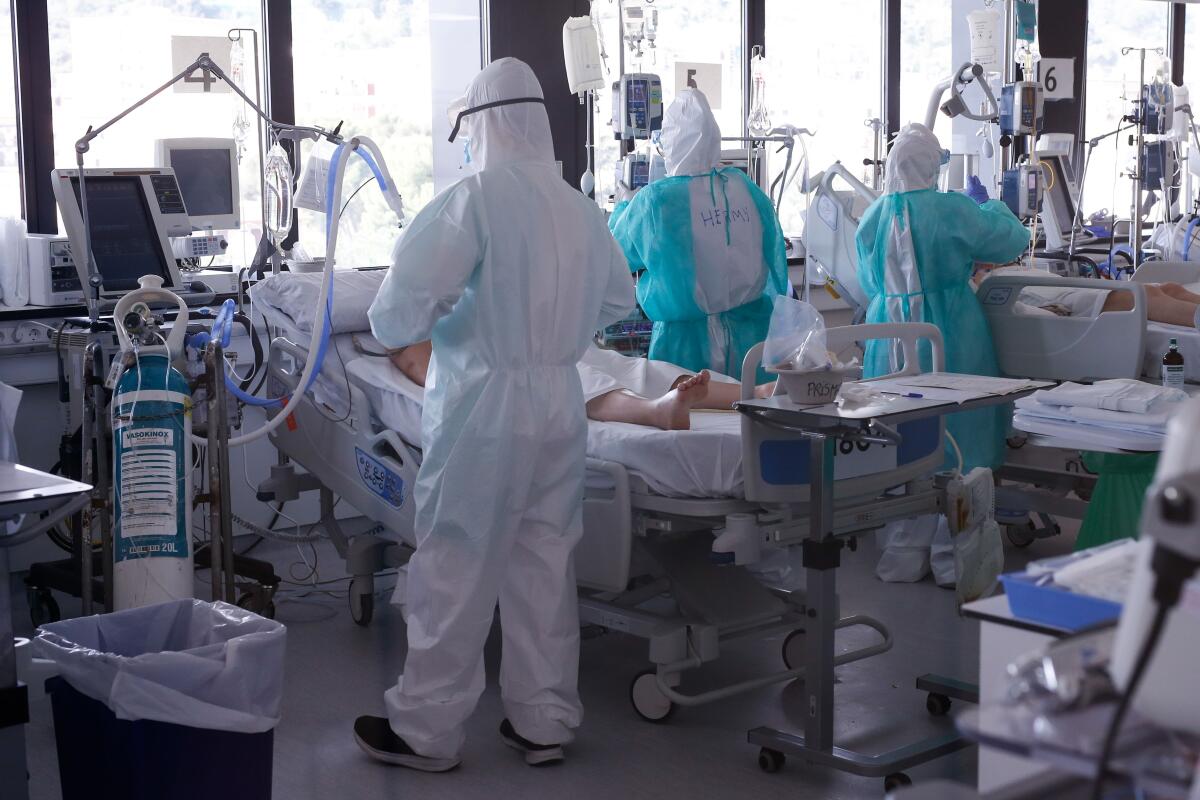
The country had recorded more than 135,000 cases of people infected with the coronavirus and more than 13,000 deaths as of Monday.
Emergency service centers throughout Spain and elsewhere receive calls all day, with numbers much higher in recent weeks because of the coronavirus.
“All the centers are overloaded at the moment. We have a lot of calls from the elderly, people up to 103 years old,” said Eva Salas, head of the Transinsa ambulance service coordination center based in the city of Oviedo, in the Asturias region.
For the country’s nearly 29,000 emergency health technicians, there is no respite. The emergency call center, which operates 24 hours, is bombarded with requests for help with coronavirus cases.
In less than a month, that ambulance company had performed more than 1,000 coronavirus transfers and 2,000 home tests. Every person who tests positive or who is suspected of having the coronavirus has to be transferred by ambulance from home to a medical center.
“We try to have as few casualties as possible. The situation generates fear and a lot of stress among our colleagues, but we must remain calm,” said Carlos Paniceres, director of Transinsa.
Scenes of coronavirus social distancing around the world.
A call for help came into the office related to COVID-19. Manuel López and his colleague Carlos Valdés prepared to respond.
They joked as they put on their protective equipment, though there also was a sense of concern. A few hours before, they had been notified that two of their former ambulance crew members had tested positive for the coronavirus.
As López drove the ambulance, the sound of the siren, almost as strong as the smell of disinfectant, broke the sepulchral silence that for days had dominated the streets of Spain. The country’s 47 million people have been living in confinement since March 14 per government orders to try to contain the virus.
A woman received them at her apartment. Upon seeing the paramedics in protective gear, she quickly said she thought she was suffering from allergies or the flu, not the coronavirus.
Her words were cut short by her dry cough and breathing difficulty. She put on a protective mask. She said her chest hurt.
Over the course of a day, Valdés and López make up to four transfers to hospitals. It’s a tiring task. Cleaning the ambulance after each trip can take up to 45 minutes.
In some cases, emergency workers face concerns about adequate protective equipment while dealing with the workload.
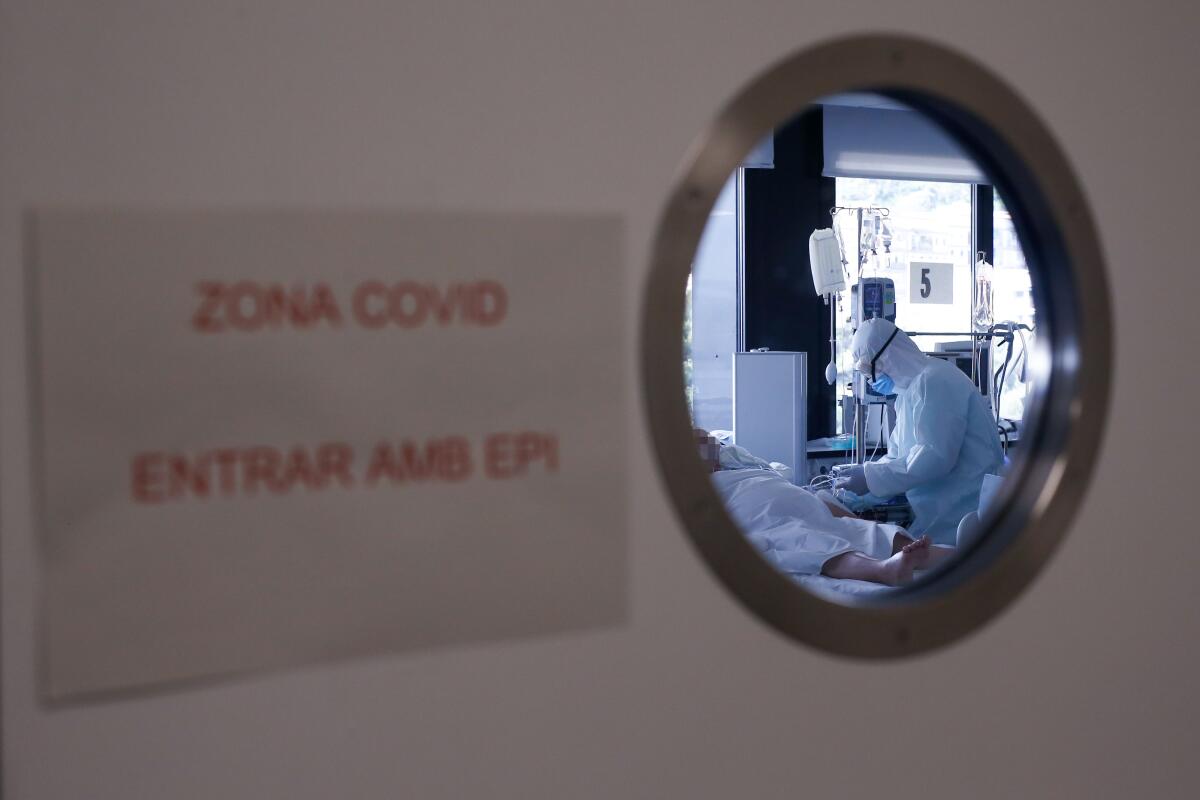
“We have twice as many casualties, either because they have the virus, or because they have isolated themselves. We are facing a workload that has never been seen before,” said Carlos Magdaleno, president of the National Federation of Ambulance Cos.
Magdaleno said hundreds of ambulance workers have decided to isolate themselves for fear of infecting their families.
The Health Ministry and the General Council of Official Assns. of Psychologists of Spain recently set up a helpline to provide psychological support for people who are struggling amid the pandemic. The telephone service is aimed at managing outbreak-related stress and discomfort.
“Physically we are exhausted, but more so mentally. When the day is over, you collapse,” González said.
Psychologist Raquel Villa, who meets with emergency technicians to offer assistance in coping with traumatic experiences, said her 12-year-old daughter was sent to live with her grandparents in the countryside to try to keep her from being infected.
“Post-traumatic stress is going to be society’s pandemic disease after this is over,” Villa said.
More to Read
Sign up for Essential California
The most important California stories and recommendations in your inbox every morning.
You may occasionally receive promotional content from the Los Angeles Times.
